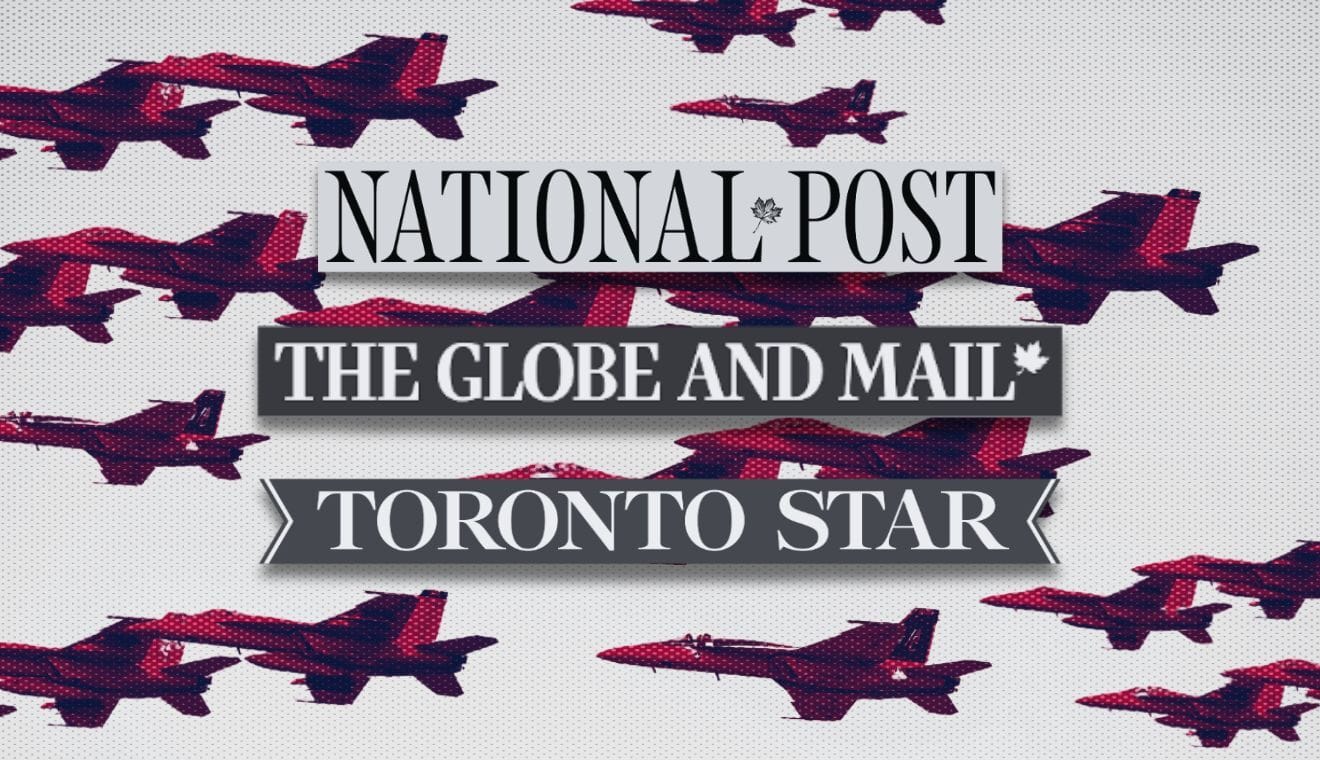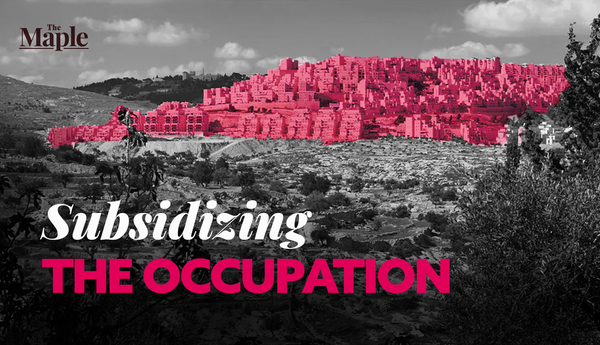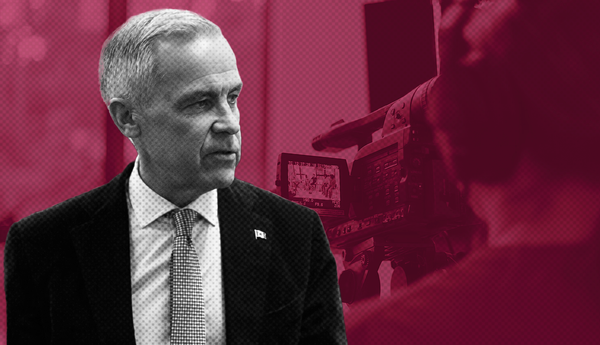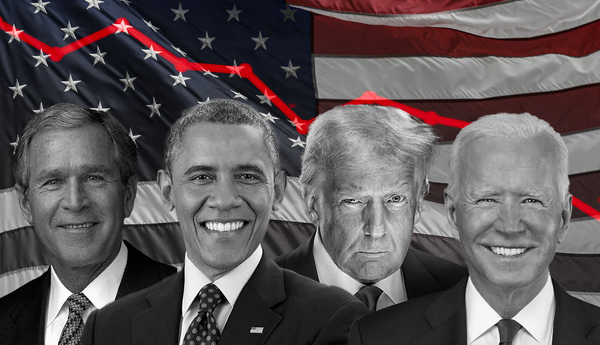The Maple recently revealed that Canada’s three largest newspapers are regularly quoting experts on military spending targets without disclosing relevant information about who financially supports those experts and their organizations.
In a large majority of cases, the quoted experts or their organizations received some level of financial support from defence contractors that could stand to benefit from increased military spending, or from the Department of National Defence (DND) itself. A handful of the other organizations do not release information about their sponsors.
The vast majority of the news articles surveyed by The Maple — 88 per cent — failed to include any pushback against the idea that NATO allies, including Canada, should spend at least 2 per cent of their GDPs on defence.
Our first article focused on the Canadian Global Affairs Institute (CGAI), since experts from that organization were by far the most frequently quoted by The Globe and Mail, National Post and Toronto Star in stories about Canada’s military spending targets.
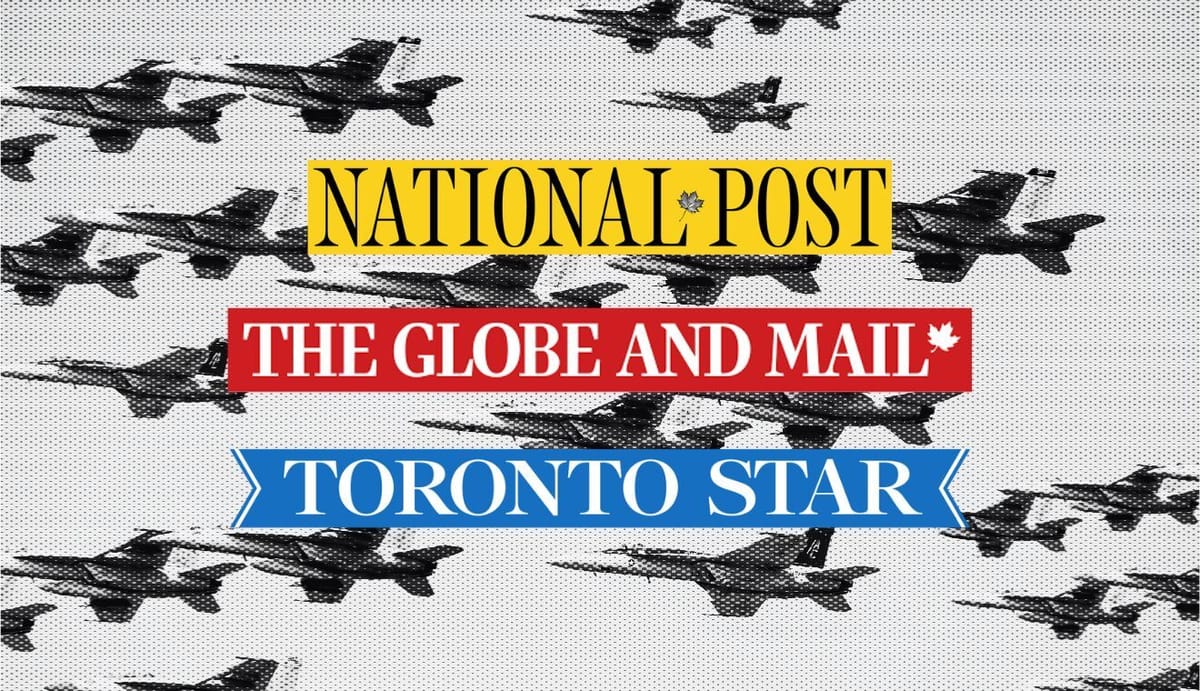
CGAI’s events and projects are financially supported in part by companies that could stand to benefit from increased defence spending, including the Canadian subsidiaries of some of the largest arms companies in the world. It is also sponsored by DND.
The Maple identified just one news article, published by the Globe, where that support was disclosed.
The Globe and National Post did not respond to questions from The Maple in its investigation.
The Star categorically rejected any suggestion that its coverage is misleading or serves the interests of the arms industry. It did not address The Maple’s question about why the Star does not disclose CGAI’s financial supporters when quoting the organization’s experts.
In this piece, we look at some of the other organizations linked to experts who are regularly quoted in news stories about Canada’s military spending targets, and, where possible, their financial support and other partnerships.
Not all of the organizations disclose this information.
Conference of Defence Associations Institute (CDAI)
What is it?: CDAI’s website describes itself as “a non-partisan registered charity organization with the mission to advance informed debate on national security issues, particularly those that pertain to national defence and the Canadian Armed Forces. We aim to foster a fact-based and rational approach to dialogue regarding Canadian defence, security, and foreign policy.”
The institute was founded in 1987 by the Conference of Defence Associations (CDA), a group that was established in 1932 in order to express “its ideas and opinions with a view to influencing government security and Defence policy.” CDA serves as an umbrella group for “40 member associations who represent over 400,000 active and retired members of the Canadian Armed Forces.”
Partners and supporters: In its 2019-2023 impact report, CDAI listed defence contractors Lockheed Martin, Raytheon and Thales as being among its “strategic partners.” It also states that it received funding from DND, NATO, the U.S. embassy in Ottawa and the European Union. According to DND’s website, CDAI received a total of $324,000 in targeted engagement grants in 2023/24 from the ministry via its “MINDS” program.
Where they’re quoted: Lieutenant-General Guy R. Thibault, who sits as Chair of CDAI’s board, was quoted by the Toronto Star three times between 2022 and 2024 in articles surveyed by The Maple. His role at CDAI was directly mentioned in one of these cases.
The Star did not disclose CDAI’s partnerships or funding in any of the articles in which Thibault was quoted. In April 2024, Thibault criticized what he regarded as a lack of “urgency” in the Trudeau government’s military spending plans.
In an unsigned emailed statement, CDAI told The Maple that its positions on any matter, including military spending, are guided solely by its member associations.
“In exchange for their support, our corporate sponsors gain visibility within our large veteran community and newsletter subscribers,” the email continued. “We do not consult with them when issuing statements or taking on media engagements.”
Macdonald-Laurier Institute (MLI)
What is it?: MLI’s website describes itself as Canada’s only “truly national public policy think tank based in Ottawa,” and states that it is “rigorously independent and non-partisan.” It has been described by critics as “neoconservative,” particularly on defence and foreign policy issues.
Featured testimonials on its website come from former prime ministers Stephen Harper and Paul Martin, Conservative Party Leader Pierre Poilievre, and former minister Jody Wilson-Raybould. It has partnered with the Atlas Network, a right-wing libertarian coalition in the United States that has deep ties to conservative politicians and fossil fuel producers, according to a 2022 investigation by The Narwhal.
Partners and supporters: MLI’s most recent annual report does not disclose a list of donors or partners. The organization’s 2021 annual report, retrieved via the Wayback Machine, stated that “a list of donors is available on request at MLI’s offices.” The report noted that 15 per cent of its revenue that year came from “aligned governments and international foundations,” while 16 per cent came from “corporations and associations.”
In its 2023 report, the think tank promised to provide audited financial statements upon request, with no mention of donor lists. The 2023 report stated that it received $729,000 from “corporate and associations,” and did not distinguish between funding it received from domestic versus international foundations, as it did in 2021.
Last year, lawyer Dimitri Lascaris reported that MLI had “abandoned its publicly-stated policy of disclosing its donors after receiving requests for its donor list from peace activists.” He and a fellow peace activist had visited the think tank’s offices in Ottawa to request a copy of the donor list, only to be refused soon afterwards. According to Lascaris, MLI said that after consulting with its lawyers, the think tank had adopted a new policy stating that its donor list is “confidential and cannot be released to the public.”
In his analysis of MLI’s older reports, Lascaris found that between 2010 and 2019, MLI received donations and/or event sponsorships from eight foreign governments and institutions, as well as from Lockheed Martin (in 2017) and security contractor Lodestar Security Services (in 2014 and 2018).
MLI did not respond to The Maple’s emailed questions about its funding.
Where they’re quoted: MLI senior fellow Richard Shimooka was quoted in articles published by the National Post in 2022 and 2024. Discussing a letter from U.S. senators urging the Trudeau government to step up on military spending in May, Shimooka predicted: “If it’s a widespread view within the U.S. senate and house that Canada is a laggard in spending and they’re not happy with it, you know that this will become a bilateral issue because Trump will look for a grievance to pick at, and this is an easy one.”
In 2022, Shimooka said that Canada should be looking to spend more on its military than just the 2 per cent GDP target: “There’s so many new technologies and issues out there, that just going to two per cent — especially when we’ve underspent for the past 10 years — probably isn’t sufficient. We need to go higher.”
Canadian Defence and Security Network (CDSN)
What is it?: CDSN’s website states: “Based at Carleton University, we aim to bring together academics, policy-makers, military officers, and civil society in Canada and connect them to those elsewhere. We use traditional and social media to amplify the research of our themes, and we will be developing a variety of training and networking activities to foster a more inclusive next generation of defence and security scholars, scientists, and policy officers.” The organization is directed by Stephen Saideman, a professor of international affairs at Carleton University.
Partners and supporters: In its 2023/24 annual report, CDSN lists NATO and the NATO Association of Canada as being among its partners. The report also notes that CDSN produces work funded by DND’s “MINDS” program, and that the organization organized a MINDS conference where attendees included “officials from the Department of National Defence, the Canadian Armed Forces [CAF], academics, and staff from the nine MINDS networks.” DND’s website states that $49,980 was provided for the 2023 event.
On his personal website, Saideman acknowledges receiving grant money from DND, as well as from the Council on Foreign Relations, the Social Sciences and Humanities Research Council of Canada, the Social Science Research Council and the Carnegie Corporation.
He writes: “None of these or other agencies have told me what to write or say, and that kind of conversation would go badly. I treasure my academic freedom, and I speak my mind when I appear in the media. One could question what I say based on where I have received grant money, but that would be ignoring my established record for criticizing those who feed me.”
Where they’re quoted: Saideman was quoted in Globe and Mail and National Post articles surveyed by The Maple, without those publications disclosing the funding that he and his network have received.
While Saideman described the NATO 2 per cent GDP target as a “lousy metric” in an interview with the Globe in April 2023, he previously suggested that Deputy Prime Minister Chrystia Freeland would be hampered in attempting to gun for the role of NATO secretary general because her government had “underperformed on a key NATO metric.” In an interview with CDAI in June 2023, Saideman explained: “This 2% thing matters, but I don’t think it should be driving decisions, and it shouldn’t be driving our conversations as much as it does.”
He also said:
“What matters more is whether Canada shows up [...] We are at a point where our ability to do is constrained by what we’re spending. To follow through on our Indo-Pacific Strategy for instance, we had to move a ship from the Atlantic to the Pacific. We just don’t have enough ships. That means that we are not as involved in the various Baltic operations as we once were at sea.”
Alex Cosh is the news editor of The Maple.


